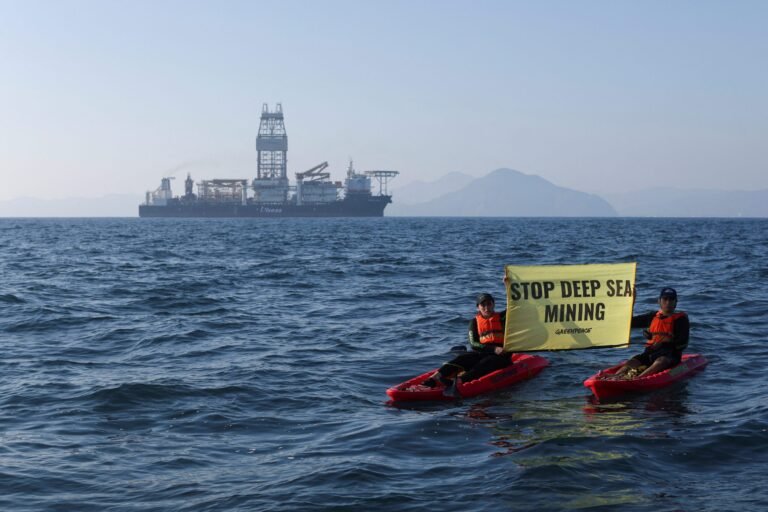President Trump Signs Executive Order to Boost Deep-Sea Mining Industry
On April 24, President Donald Trump signed an executive order aimed at boosting the deep-sea mining industry, signaling his latest effort to enhance U.S. access to critical minerals such as nickel, copper, and others essential for various sectors of the economy.
The order, signed in private by Trump, focuses on jumpstarting mining activities in both U.S. and international waters as a strategic move to counter China’s dominant control over the critical minerals industry.
According to a report by Reuters last month, the deliberation on this order was already in progress.
The Pacific Ocean and other regions are believed to hold significant quantities of polymetallic nodules, which are rock formations shaped like potatoes containing essential elements for electric vehicles and electronics.
An administration official mentioned that U.S. waters alone are estimated to hold over 1 billion metric tons of these nodules rich in minerals like manganese, nickel, and copper, presenting a substantial economic opportunity.
Extracting these resources could potentially boost the U.S. GDP by $300 billion over the next decade and create around 100,000 job opportunities, as per the official.
In his statement regarding the order, Trump emphasized the national security and economic importance of maintaining leadership in deep-sea science, technology, and seabed mineral resources.
The executive order directs the administration to streamline the process of granting mining permits under the Deep Seabed Hard Minerals Resource Act of 1980 and establish a mechanism for issuing permits along the U.S. Outer Continental Shelf.
Furthermore, the order calls for an expedited review of seabed mining permits in areas beyond national jurisdiction, a move that could potentially lead to disagreements with the international community.
Environmental Concerns and Industry Response
While supporters of deep-sea mining argue that it could reduce the need for land-based mining operations that often face community resistance, environmental groups are strongly against such activities. They warn that industrial operations on the ocean floor could result in irreversible biodiversity loss.
Greenpeace’s Arlo Hemphill criticized the U.S. government’s decision, stating that allowing an industry to damage the ocean’s common heritage for corporate profit is unacceptable.
Various companies, including The Metals Company and Impossible Metals, are already eyeing opportunities in deep-sea mining. The Metals Company saw a significant surge in its stock value following the announcement of the executive order.
Future Outlook and International Relations
The order’s focus on enhancing U.S. access to critical minerals comes at a time when China has restricted exports of several minerals, putting pressure on Washington to prioritize domestic mining efforts.
Other recent mining initiatives by the Trump administration include fast-tracking permitting for mining projects and approving large-scale copper mines across the country.
It is worth noting that the executive order’s reference to “rare earths” encompasses all critical minerals and does not specifically imply the presence of rare earth elements in the polymetallic nodules.
As the U.S. moves forward with plans to expand deep-sea mining activities, it is likely to face challenges from environmental groups and international bodies such as the International Seabed Authority.
(c) Copyright Thomson Reuters 2025
Subscribe for Daily Maritime Insights
Sign up for gCaptain’s newsletter and never miss an update
— trusted by our 109,149 members

